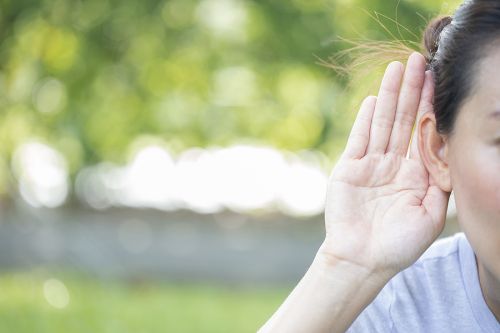Menu
Principal Office, Houston Texas Remote Services, Texas and Florida
(by appointment only)
713.568.8600
(by appointment only)
713.568.8600 | 904.425.9046


According to the ten-year study done by the Journal of the America Medical Association (JAMA), a strong link between hearing loss and health risks exists. The risks include a 50 % greater risk of dementia, a 40 % greater risk of developing depression, and nearly a 30 % higher risk for unintended falls.
Hearing Loss Linked to Depression
Reuters Health cites data analyzed by researchers, combining the findings from 35 previous hearing studies with participants aged 60 or older, that establishes the connection between hearing loss and depression. The aggregate of the conclusions of these reports suggests that older adults who experience some form of hearing loss are 47 % more likely to display symptoms of depression. The takeaway is that depression is often brought about by the isolation of an individual, and hearing loss tends to create social isolation. Cited in the same Reuters article, Dr. Nicholas Reed of the Cochlear Center for Hearing and Public Health at Johns Hopkins University School of Medicine agreed with the findings published by Reuters: “Hearing loss impairs communication and influences balance, which can lead to social isolation and decreased physical activity that, in turn, result in depression.”
Hearing Loss as a Precursor to Cognitive Decline
Beyond the problem of social isolation due to hearing loss is that the longer one waits to address the issue, the greater the risk of associated cognition problems. An older adult may be able to hear words but not be able to understand their meaning cognitively. It is imperative to see an audiologist and test hearing capabilities to establish an informational baseline and make future adjustments accordingly. Overall, older adults who experience hearing loss tend to withdraw from society and are more likely to experience mild cognitive decline furthering levels of social and emotional loneliness.
Hearing Loss Means Loss of Sounds
Excessive and unhealthy noise often contributes to hearing loss,* and that hearing loss often lowers quality of life and can also have severe implications regarding personal safety. Potential danger warnings—like smoke alarms, car horns, fire alarms, and public safety announcements—all require the ability to hear. Hearing loss limits everyday life experiences in our ability to socialize, work, and communicate. It also limits joyful experience like the sound of a child laughing, a bird singing, a loved song on the radio, or a gab session with a great friend.
Solutions for Hearing Loss
Thus far there is no way to undo damaged hearing, but other than cost, there is almost no downside to hearing aids anymore. Their look is discreet, they are easy to learn how to use, and they are professionally adjustable over time to compensate for increased hearing loss. Once you factor in the cost of a potential fall or the increased risk of dementia, social isolation, and depression, the price of hearing aid(s) winds up being comparatively minimal. Although the study, as reported by Reuters, does not investigate whether treating hearing loss can prevent depression, aging Americans should still seek medical attention when experiencing hearing problems.
Protecting Our Hearing
Hearing and its complexities and loss will continue to get a lot of attention moving forward. In a world full of headphones, earbuds, robust speakers, (loud rock concerts,) and unwanted environmental noise, all of us are at risk of having diminished hearing abilities. Turning down the sound whenever possible to improve our quality of life as we age is a good step. After all, hearing loss has a profound impact on our well-being.
McCreary Law Office cannot help directly with hearing loss (but together we can reminisce about some of the excessively-loud concerts). Still, the elder law side of my practice brings special understanding of these issues. If I can be of assistance in any way, please don’t hesitate to reach out. Please contact McCreary Law Office or call the Jacksonville, FL office at 904-425-9046 or the Houston, TX office at 713-568-8600.
* It is estimated that 100 million people in the US are exposed to unhealthy levels of noise. Aircraft and automobile noise, leaf blowers and lawnmowers, car stereos and earbuds all contribute to the increase of hearing loss. Granted, those of us who attended rock concerts in our youth (or even not so youthful past) may disagree whether that noise was healthy or not, given the joy it brought (I’m looking at you, 11th-row 2009 ACDC concert!); I think we can typically agree, though, it was usually quite excessive.
© 2025 McCreary Law Office, PLLC